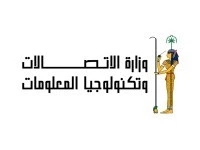- MCIT’s institutional development strategy is central to achieving Egypt’s Vision 2030 and Africa’s Agenda 2063
- Focus on operational excellence, capacity building, and digital equity defines Egypt’s evolving e-governance ecosystem
MCIT Egypt: Rewiring the machinery of government for a digital era
In the shifting landscape of global governance, Egypt’s Ministry of Communications and Information Technology (MCIT) has emerged as a system architect of state modernisation. More than just a facilitator of ICT infrastructure, the ministry is spearheading the digital transformation of public institutions—embedding digital logic into the very fabric of government operation.
At the heart of this transformation is a nuanced institutional development strategy. MCIT’s stated mission is to “shape a safe, productive, and sustainable interactive digital society.” To that end, it has identified four strategic pillars: fostering digitally-enabled environments, introducing supportive technologies, empowering a competent government workforce, and driving sustainable operational excellence.
The approach is far from superficial. It is rooted in Egypt’s constitutional mandate, Vision 2030, the Sustainable Development Goals (SDGs), and Agenda 2063. This multi-level alignment ensures that digital progress in Egypt is not only technologically robust but also socially inclusive, environmentally conscious, and strategically resilient.
Also read: Penguin Random House blocks AI training on its books
Also read: Bain & Co. and OpenAI collaborate to deliver AI tools to clients
Institutional development: MCIT’s engine for Long-Term national capacity
MCIT’s transformation blueprint reflects a deep understanding that technology alone does not create smarter states—institutional readiness and human capacity are equally critical. The ministry is actively retraining civil servants to adapt to the evolving digital tools, workflows, and service models, aiming for sustainable excellence rather than one-off efficiency gains.
This effort comes as Egypt’s digital economy accelerates, buoyed by a growing startup ecosystem, widespread 4G penetration, and a government-led shift to cloud services and digital identity systems. Simultaneously, AI, blockchain, and cybersecurity innovations are being explored in sectors like health, agriculture, and finance, often in coordination with private-sector partners.
Yet the transformation is not without friction. Challenges persist in integrating legacy systems, maintaining digital trust, and ensuring equitable access for citizens in rural areas. There is also the delicate task of aligning public-sector innovation with data governance, ethical AI use, and regulatory transparency—a balancing act many emerging markets struggle to master.
Still, the scope and ambition of MCIT’s agenda stand out in the region. Its focus on institutional sustainability—defined not only in environmental but also organisational terms—marks a mature phase in Egypt’s digital journey. As nations worldwide grapple with technological disruption, Egypt’s MCIT provides a compelling case for how policy, structure, and people must co-evolve in the digital age.

